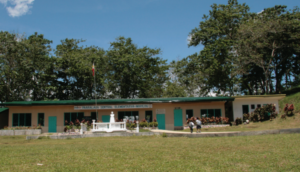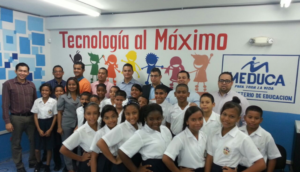C3 Micro-Clouds are Revolutionizing Kenya’s Education Sector
The Republic of Kenya is the 29th most populous country in the world, with 50.2 million people. The country’s economy is the largest in eastern and central Africa, with Nairobi (its capital and largest city) serving as a major regional commercial hub. However, according to UNESCO, in 2017, the adult literacy rate was under 80% overall, with a significant gender gap: the literacy rate for females was under 75%. In some regions, a large percentage of girls are not even enrolled in schools.
Recognizing education as the primary means of sustainable economic and social development, the Government of Kenya has recently implemented programs that have led to a rapid expansion of the education sector. The Ministry of Education’s main goal is to provide the best quality of education, with particular emphasis on science, innovation, and technology. As a result, new measures and initiatives were needed.
Aware of the transformative power of technology in education, the Kenyan government has made significant progress in implementing technology strategies in schools. This project introduces the use of technology in classrooms to ensure that students can exercise their right to a quality education and gain the skills, knowledge, and confidence they will need in the future.
As part of this initiative, several schools in Kenya have received smart devices supported by C3 Micro-Clouds, which provide students with access to a 21st-century education. The C3 Micro-Cloud creates a dynamic learning environment, offering a local content repository and powerful e-learning tools. Teachers and students connect via Wi-Fi to the local micro-cloud, giving them access to a fully cloud-based learning environment.
Content such as texts, subject media, guides, tests, and other resources are cached on the C3 Micro-Cloud, ensuring they are always available, even if ‘upstream’ network connectivity is unavailable. The C3 Micro-Cloud also features a battery backup, allowing students to learn without interruptions, even during power outages. Updated and approved educational content, which can be curated centrally by authorized administrators, is available at all times through the C3 Cloud Control portal.
St. Aloysius Gonzaga Secondary School, a mixed school located in Nairobi, is one of the institutions benefiting from this technology. The C3 Micro-Cloud has already significantly improved the quality of education for its 110 students. No longer reliant on outdated textbooks, students now have access to a variety of resources, including videos, podcasts, games, websites, and more. “The C3 Micro-Cloud has been an invaluable and admirable tool here at St. Aloysius Gonzaga School,” stated one teacher. “The caching and high bandwidth provided by the C3 Micro-Cloud have made me truly appreciate the project.”
This teacher also noted that students are more engaged and better understand the material being taught. “Technology has enhanced the quality of students’ thinking and writing, and improved their ability to solve complex problems. With e-books, videos, and learning games, learning has become enjoyable, and students are highly motivated.” Another teacher added, “Students can now learn at their own pace, revisit lessons, and access online instructions to support the learning process.”
Students also recognize the impact of technology on their education. “Now I love going to school. It’s easier for me to retain information, and as a result, I have better grades. I’m excited about the future,” said one student.
The introduction of technology and the C3 Micro-Cloud has profoundly changed how teachers teach in Kenya. Classroom walls are no longer a barrier to a technology-driven future, with teachers taking on the role of mentors while students take more responsibility for their learning.
At Critical Links, we believe that we can foster new and better forms of learning and reasoning. Together, we are reshaping education for the future!


